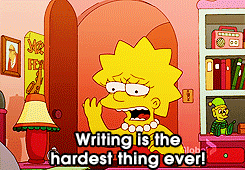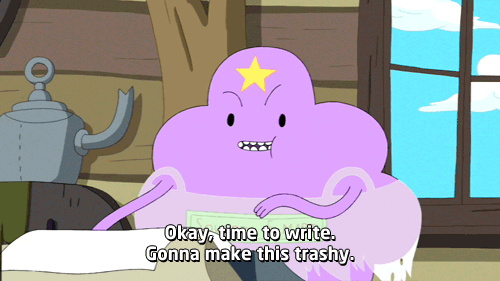wish me luck. This week marks the beginning of the end of my first semester of law school.
I'd like to think that I'm ready - that all my hours spent preparing will pay off - but who knows.
I'm hoping to ride the curve to success with the rest of the class. Because, in the end, that's how this works right? We are judged against our peers. If we all fail we all pass. Right?
Because if I'm truly honest with myself, I'm feeling a lot like Michael Scott right about now:
Monday, November 30, 2015
Thursday, November 26, 2015
Happy Thanksgiving
I took off work so I could study all week - said no sane person ever. Good thing I'm in law school where being insane is a prereq.
Just wanted to wish you well before I fall into my inevitable carb coma.
Have a terrific Turkey Day with friends and family~
And if you are running a Turkey Trot - good luck and stay warm!
Just wanted to wish you well before I fall into my inevitable carb coma.
Have a terrific Turkey Day with friends and family~
And if you are running a Turkey Trot - good luck and stay warm!
Thursday, November 19, 2015
TBT: Crafting a Query Letter
I've recently been drafting query letters for projects I'm dreaming up. I know, I know, I should be focused on law school and finals but my brain needed a break.
So, for today's TBT I'm sharing my strategy on Crafting a Query Letter. I picked up this lovely method while attending an RWA conference. Have I mentioned lately how much I love RWA? Anyway, this query letter method has helped me hone my query and I hope it helps you, too.
Enjoy!
-----------------------------------------------------------------------------------------------------
Query letters are no joke. It's hard to boil an entire novel down into three paragraphs.
Luckily, I attended RWA's national conference last summer and learned some FABULOUS tips on query letters.
In general, the query should read like the back jacket of a book - high energy, low details, and dripping with suspense and tension.
Yes, but how do a distill all my awesome novel into a letter, you ask?
Simple, follow the format. There is actually a format to a query. Someone at the conference was preaching about structure in queries and it finally clicked. Knowing the format took a bit of the mystery out of it for me.
Think about it like the three act structure in your novel (beginning, middle, end) only in the query it should be something like: Intro, Conflict, Stakes.
In the intro give one or two sentences setting up the character and world/setting. At least one sentence stating what the character wants and why it's important. It's okay to be direct.
Next you have the conflict: What goes wrong?
And then last but not least, we need the stakes: what happens if she fails? What does she stand to lose? What will she have to sacrifice? This should be big so it hooks us to want to read more.
Try this, exercise. Fill in the blank.
"She's a ____________ that wants nothing more than _____________. He's a ____________ that wants nothing more than______________. Together they must __________________ or stand to lose_______________________. "
Ideally, what she wants and what he wants should be in direct conflict with each other. Together, what they must do should push their limits and threaten to unravel them as individuals. What they must do together is the test that makes them grow and change.
This is a good format to start a query because it has the intro, conflict and stakes. This is also the format you would want to use if you were pitching this MS to an agent or editor live, and in person, at a conference or something.
What strategy do you use to craft your query? Share ideas here:
Want more advice on query letters? Check out this post and this one.
Monday, November 9, 2015
Expectation v. Reality - The Curious Case of The Part-Time Law Student #1Lhell
There are certain things you expect when you start out on your law school journey. You expect to work hard. You expect to sacrifice. You even expect to go a little nutz-o when exams loom over you like the shadow of the Grim Reaper. And if you are considering going back to school (meaning law would be a second (or third, or fourth) career and not that k-JD + gap year crap) you probably expect things will be different for you.
And you're right. Things will be different for you. Very different.
Law school is hard and it will be hard for you. But there are a lot of little ways going 'part-time' isn't what I thought it would be.
1. Part-time is really Full-time minus 1 class - Not every school offers a part-time program. The ones that do offer part-time schedules aren't exactly what you might consider 'part-time' in the normal sense of the word. I'm not going to school two nights a week (or even three nights a week), no, I'm going to school four nights a week. First Semester, 1L year, my class load is identical to my full-time day student colleagues with the exception of one class. Now, that's not to diminish the work that day students do. I can't imagine tossing another class into the tornado that is my life a the moment. But it's just one class. Four days a week does not a true 'part-time' schedule make.
2. Constantly disappointing someone - If you are going to school, working, and have a life full of family and friends you will disappoint someone almost daily. That person might be you. Let's face it, you're here, in law school, because you are a go-getter, a do-er, an ambitious destroyer of goals. You get shit done. It's what you do. But now you're in a place where you can't possibly get it all done. You simply can't. I know what you're thinking as you read this, "no, not me. I can get it done. Just because you can't doesn't mean I can't." And maybe you're right. Maybe you're Superwoman/man or maybe you're just in denial. Who knows. Ultimately, there will come a time in your law school career where you will have to pass on spending time with family because of school. There will come a time when you will miss special events or forget birthdays because of school. There will come a time when you will chose to pass on a promotion because you can't manage a new role AND school. And promotions aside, you will likely run into difficulty with work because there just isn't enough time in the day to get work and school and family done at the previously held standards of excellence that got you here.
3. Not giving 100% to anything - Before law school, I would give 100% to my day job and when I was away from the office I would give 100% to my personal life, goals, and relationships. Not no more. No way, no how. I can't give 100% to everything ever day. I'd love to be back in my twenties and going to school full-time. But, alas, those days are behind me. Now I have a job, with clients who need me to solve their problems. And I have a husband, who needs me too. And I have school. There are days that I want to give 100% to work and that means school and relationships suffer. On days when I give 100% to school my other commitments potentially suffer. Which brings me to my next item;
4. Making sacrifices is harrrrrd! - When I got accepted to law school and started considering what sacrifices I would need to make I was riding high on the excitement. But now I'm in the throws of the semester and the reality of everything is hard. Just hard. And with difficult choices come guilt.
5. Limited opportunities - Even though my law school goes out of their way to provide opportunities for their part-timer's there are tons of events that I can't go to because they are offered during the day. Basically anything offered before 6pm is hit or miss. And anything offered at noon is a no-go. It's tough when you want to participate but can't.
6. Feeling left out - Feeling left out can happen everywhere. As number 5 above mentioned, it's easy for a part-time student to feel left out of law school life. But I also feel left out at work and home too. I miss things. People forget to tell me things. I'm just not plugged in like I was before. Some of that is by design. I work less hours for my job and they know I'm going to school so I miss out on work things. At home I'm not as plugged into family events so I miss out on things there too.
Which brings me back to Dory:
There are a lot of ways being an part-time 1L isn't what I thought it would be. But the best part of school so far is all the ways school has been better than I ever imagined. My classmates are awesome and supportive. I love the material. And when everything between work, home, and school gels it's an awesome feeling.
Are you a part-timer? How has your experience been so far?
Thursday, November 5, 2015
TBT: Advice On The Beginning (stuff I picked up along the way) #nanowrimo
For today's TBT I'm sharing Advice on The Beginning (stuff I picked up along the way). (Maybe this will help all you Nano-er's out there). Every page of a book is important but the beginning of a book has to be laser focused. It needs to sell the book to the agent, publisher, and ultimately, reader. There are many right ways to write a book but I wanted to share some of the advice I'd gathered from my many writing classes.
Enjoy!
-----------------------------------------------------------------------------------------------------
I’m not perfect – nowhere close, even, and I still have a lot to learn. But I have taken a few writing classes over the years (At RWA, LitReactor, and WritersDigest) that focused exclusively on the first chapters of a novel. The thought was, if we could get our openings to shine we’d have a better chance of nabbing an Agent. Of course, I think it was implied that we would continue revising and make sure that the entire novel glittered with excellence but in class we only focused on the beginning.
And one of my goals in starting this blog was to give back to this amazing, supportive, online community of writers. To that end, I thought I’d capture some of the fun, and hard, writing advice I’ve gleamed over the years:
Here's what I've learned:
1. Never start with a dream: LOL, I know. But Agents say it's still WAY overdone.
2. Never start with the weather: Again, heard it’s overdone. And opening with weather often fails to move the plot forward so it's wasted words.
3. Cut the first 50 pages of your book: Literally, one teacher, an Agent herself, said to take the first fifty pages and chuck them out the window. I was in shock. But the point the teacher was trying to make is that, usually, a book doesn’t take off until 50 pages in. Which means, do you really need the first fifty pages? The teacher, speaking from her personal (and subjective) experience, said most of the first 50 pages she receives in her slush pile are boring. Her advice doesn’t sound that crazy anymore.
4. Never include a flash back in the first 50 pages of your book: I think this advice goes hand in hand with item 3. The beginning is about conflict, action, and hooking the reader. Flashback's early in the story don't typically hook the reader (um, because we don't care about the characters yet). Save the flashback for the third act.
5. First sentence: This sentence must pop. This one, measly little sentence could be the only chance you get to hook an Agent. So make sure it's full of action. Generally, its advised that the first sentence should not be spoken, as in dialogue. But I’ve broken that rule. Aren’t rules meant to be broken? No, that’s not an excuse to stop improving your craft. *narrows eyes at you* I know what you’re thinking. Just know the rules and understand their value before you break them.
6. First 250 words: These are the NEXT most important words in your entire novel!!! Why? See number 5. An Agent may never read past 250 words. Use these words to setup WHO, WHAT, WHERE, and CONFLICT (It doesn't have to be the main conflict of the chapter but it has to be something). Think about the 250 words like the first scene of a movie. The reader, or movie goer, needs to be dropped into a world. In order to understand the world they need a few key elements: WHO, WHAT, WHERE, and CONFLICT all crammed into the first 250 words. Often, the first chapter will include all of these elements but not the first 250 – but you may have missed your chance. Rework the first 250 words to ensure the reader is dropped into a fully established world from the get-go.
7. First 10 pages: Can you guess where I’m going with this? These are the THIRD most important words in your entire novel!!! Yay! So you got an Agent passed the first sentence. They read the first 250 words and now what? Now, they read the full first chapter and it should be short-ish and punchy. In one class our assignment was to slash our first chapter down to 10 pages. Sounds arbitrary, right? But the point was to laser focus our opening and drill the first chapter down to the most essential facts and details. It was hard, but fun. The essential stuff includes action enough to engage the reader and keep them asking for more. But it's also something that makes the reader connect with the MC. How many books start with someone getting fired, getting dumped, getting lost, failing a class, getting an eviction notice, etc. These are little conflicts (although they seem HUGE at the time to the MC) that propel the MC into the next, MAJOR conflict.
8. Eliminate words that create narrative distance: This is especially important in third person POV but relevant to all POV. Words like "felt" or "Seemed" separate the reader from the story. I put together this list of words that I look for when editing my own WIP's. I cut these words and rewrite the sentences so they are no longer needed. Some of the words I target are: toward, felt/feel, seemed/seem, like, heard, saw, think/thought, looked, got, just, almost, big/small, very, never/often, important, thing/things/stuff, went.
9. Rule of Three (aka, avoiding the info dump): when describing the setting – or ANYTHING, really- pick three important things and only three things to describe. More than three things is generally overwhelming to the reader. This is actually more of a best practice and not really a 'rule' but it sounds catchier as a 'rule' LOL. And it's possible to cut too much, so be careful. But if you’ve been told you info dump in the beginning chapters this is a good 'rule' to keep in mind.
And last, but not least,
10. There’s no single right way to write a book: If someone tells you there is a right way they are wrong (run away from them.) Every class opened with the teacher saying their advice was just guidelines in a highly subjective business. If something resonates with you, great, run with it. IF not, then feel free to completely ignore it, heck, maybe even try Ron Swanson's approach to witing:
It’s a lot of advice to take in. I know. And revising is already hard on the soul. But when revising to make changes associated with this advice I picked one task at a time and applied it through my entire novel. When completed, I’d pick another task and run with that. Focusing on one element at a time made the task of revising more manageable.
Want more thoughts on the beginning? Check out this post on Subjectivity in the First 250 Words.
Breadcrumbs at the beginning of the story by Chuck Wendig
Nanowrimo writing tips – or tips for writing that first draft (also by Chuck Wendig)
Second draft? What’s that?
What writing advice have you picked up along the way? Share what works for you here:
Monday, November 2, 2015
Welcome to #NaNoWriMo: 6 Things To Remember This November
It's November which means it is National Novel Writing Month (or NaNoWriMo). If you are undertaking the coolest (or nerdiest) word challenge in history this month then let me be the first to say, "Are you crazy?"
The answer is likely, "only a little."
50,000 words in 30 days is a gigantarama undertaking. I've tried to tackle NaNo 3 times and I've failed to meet goal....you guessed it....three times.
Before you get too deep into this novel-writing madness to understand the English language (oh yes, that can happen) I wanted to share a few tid-bits of advice from a humble, weary, word-nerd. My advice on NaNoWriMo:
1. You are not in a competition - unless you are competing against yourself. Then, by all means, compete away. This isn't about how much better you are doing than so-and-so. It's about setting a goal and devoting yourself to it.
2. There are no losers - if you write ONE word you are a winner. If you stall out at 19k (like I've done in the past) then you are still a winner because you have 19k toward a novel that you didn't have before.
3. Don't forget to celebrate achievements along the way - because, cupcakes! Write three days in a row? Hit 10k? 20K? or more? CELEBRATE. Just because this is a month long challenge doesn't mean you should only celebrate on December 1st. Set small goals and celebrate along the way.
4. Never start querying your NaNo Novel on December 1st - don't forget you need to edit (A LOT) before this baby will be query ready. Ask your new Nano friends if they want to be your crit partners when the project is finished.
5. Lean on your writing friends - they know how crazy this challenge can be and they are there for you. Don't be afraid to ask for help or talk something through (even if it's to vent about how dumb a character is being). This is a community and you are part of it. Enjoy it.
6. Above all - have fun! We word-nerds don't let our hair down every day. Enjoy it.
Are you Nanoing? Have advice? Leave it here:
The answer is likely, "only a little."
50,000 words in 30 days is a gigantarama undertaking. I've tried to tackle NaNo 3 times and I've failed to meet goal....you guessed it....three times.
Before you get too deep into this novel-writing madness to understand the English language (oh yes, that can happen) I wanted to share a few tid-bits of advice from a humble, weary, word-nerd. My advice on NaNoWriMo:
1. You are not in a competition - unless you are competing against yourself. Then, by all means, compete away. This isn't about how much better you are doing than so-and-so. It's about setting a goal and devoting yourself to it.
2. There are no losers - if you write ONE word you are a winner. If you stall out at 19k (like I've done in the past) then you are still a winner because you have 19k toward a novel that you didn't have before.
3. Don't forget to celebrate achievements along the way - because, cupcakes! Write three days in a row? Hit 10k? 20K? or more? CELEBRATE. Just because this is a month long challenge doesn't mean you should only celebrate on December 1st. Set small goals and celebrate along the way.
4. Never start querying your NaNo Novel on December 1st - don't forget you need to edit (A LOT) before this baby will be query ready. Ask your new Nano friends if they want to be your crit partners when the project is finished.
5. Lean on your writing friends - they know how crazy this challenge can be and they are there for you. Don't be afraid to ask for help or talk something through (even if it's to vent about how dumb a character is being). This is a community and you are part of it. Enjoy it.
6. Above all - have fun! We word-nerds don't let our hair down every day. Enjoy it.
Are you Nanoing? Have advice? Leave it here:
Subscribe to:
Comments (Atom)


































